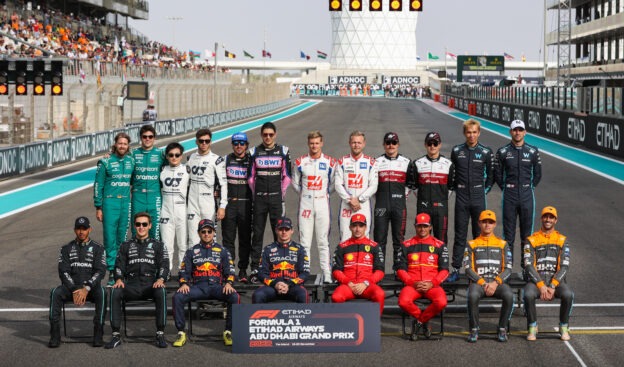A deep dive into the best Formula 1 drivers of all time

Even though the very essence of sport deals with winners and losers, it is an incredibly subjective topic when it comes down to the best ever. Formula One is no different. Drivers from decades ago are compared fairly or unfairly with the superstars of today, and though F1 is a sport very much driven by data, comparing eras is incredibly problematic. The help and challenges that a driver has today are a world away from what they would have been twenty years ago, never mind sixty years ago.
However, it is fair to say that any driver who is able to prove he is the best or one of the best among his peers, no matter what the year, will have been able to repeat that if he had been born decades later or indeed earlier. This article will strip everything else away and merely look at numbers and statistics to see who can be talked about as the best F1 driver of all time. These stats are not just a fascinating summary and guide to the history of this sport, but for those who take part in the growing market of Formula 1 betting, it will serve as a helpful guide.
The argument that the best drivers don’t necessarily win because they are not in the best cars is one that is valid up to a certain extent but can’t be used to discredit statistics when used over a driver’s entire career. The best drivers will end up driving for the best constructors, just the same as the best football players will always end up at the best – and richest – clubs.
Who has won the most Drivers’ World Championships?
When any driver climbs into his F1 car at the beginning of the season, his one aim is to win the Drivers’ Championship, so there seems no better place to start. Michael Schumacher and Lewis Hamilton head that group, both having won seven championships. Rumours of the Englishman’s impending retirement appear to be wide of the mark with the Mercedes driver stating he will go at least one more season in an attempt to pull away from the German. The only man not from the modern era to make it into the top five is Juan Manuel Fangio, who recorded all of his five championship titles in the 1950s. Behind him come Alain Prost and Sebastian Vettel, both with four.
With the exception of Prost, all of those drivers established a period of complete dominance, winning four consecutive titles, Schumacher going one better and winning five in a row.
Who has won the most F1 races of all time?
When it comes to races won, things look a little different. Lewis Hamilton is out on his own, the only driver to see the chequered flag more than a hundred times. So far* Hamilton has notched up 103 victories. Schumacher, whom he replaced of course at Mercedes, lies on 91. You have to go a long way further down to come to Sebastian Vettel (53), Alain Prost (51) and Ayrton Senna (41).
What makes those stats even more impressive, is that of those sitting in the top five list of winners, only Michael Schumacher appears in the equivalent list for number of races started (fourth on 306).
Finally, if we look at the number of pole positions achieved we see that Hamilton is again top, with the same number as races won (103). Schumacher is second on 68, then comes Senna (65), Vettel (57) with Jim Clark joining the group in joint fifth alongside Prost, with 33.
For a slightly more nuanced approach, but one no more or less accurate, feel free to head to our top 10 best F1 drivers of all time analysis we carried out two years ago.
✅ Check out more posts with related topics:















One thing that mystifies me about such discussions is how often Prost is left out. This defies the statistics, as he was clearly the best of his very competitive era. It's even more true if you forget the statistics and watched him race. Seeing how much importance was placed on race setup in this year's season, perhaps the rest are finally catching up with Prost, the best ever.
✅ Checkout the latest 50 F1 Fans comments.